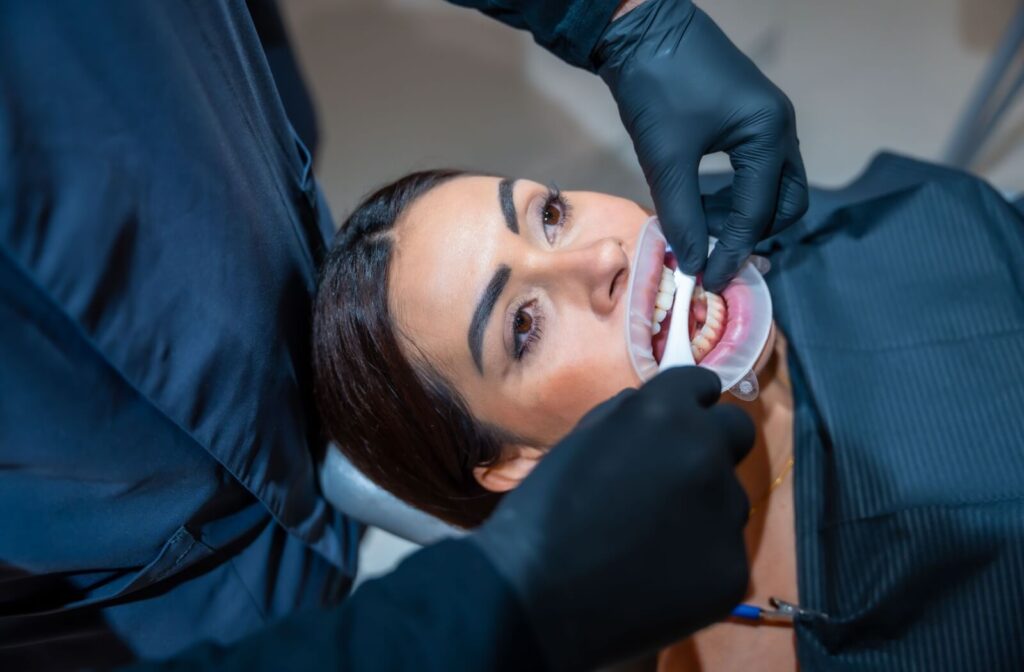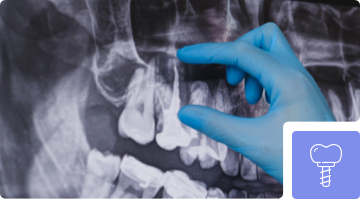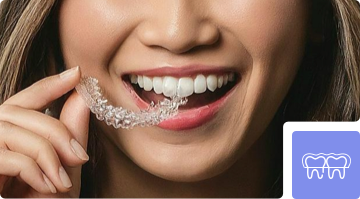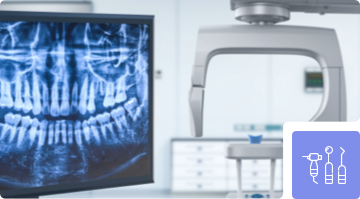Maintaining a healthy smile can involve consulting with several different professionals. While dentists and orthodontists play distinct roles in oral health, their training and focus areas differ significantly.
Orthodontists and dentists are both trained oral health professionals.
However, dentists focus on overall dental health, including cleanings, fillings, and preventing gum disease, while orthodontists are dental specialists who concentrate on aligning teeth and correcting jaw issues.
Knowing the difference can help you understand when to visit your general dentist and when you may benefit from a referral to an orthodontist.
How Are Orthodontists & Dentists Similar?
Dentists and orthodontists share a strong educational foundation. Both must complete a 4–5-year undergraduate program in dentistry, earning a DMD (Doctor of Dental Medicine) or DDS (Doctor of Dental Surgery) degree from an accredited university. Their training equips them to diagnose and treat a wide range of dental health issues.
Both professionals can:
- Perform routine dental exams & hygiene checkups
- Diagnose & treat tooth decay
- Address gum disease & provide oral health education
- Use X-rays & imaging to assess oral structures
- Offer treatment options like crowns, fillings, & cosmetic procedures
However, this is where their paths diverge. While all orthodontists are dentists, not all dentists are orthodontists.
What Is an Orthodontist?
After completing dental school, orthodontists undergo an additional 3–4 years of specialized training. Their post-graduate education focuses specifically on tooth and jaw alignment and the science of correcting malocclusion (bad bites).
Orthodontists focus their practice almost entirely on realigning teeth, jaws, and facial structures related to oral health.
While orthodontists may be trained to handle general dentistry concerns, their expertise lies in developing long-term treatment plans that improve the alignment and function of your bite.
What Do Orthodontists Treat?
Orthodontists diagnose and correct:
- Overbites, underbites, & crossbites
- Crowded or widely spaced teeth
- Jaw misalignment
- Functional issues that affect chewing or speech
- Improper growth patterns in developing children
Common treatments include:
- Braces (metal or ceramic)
- Invisalign or other clear aligner systems
- Retainers
- Headgear
- Expanders
- Jaw surgery in complex cases
Orthodontics is more than straightening teeth—it’s about preventing complications down the road. Crooked teeth or misaligned jaws can increase the risk of tooth decay, make chewing difficult, and even lead to jaw pain or sleep-disordered breathing.
When Should You See an Orthodontist?
The Canadian Association of Orthodontists recommends that children have an orthodontic assessment by age 7. At this stage, orthodontists can evaluate how adult teeth are coming in and whether early intervention might help.
Some signs your child may benefit from orthodontic care include:
- Difficulty chewing or biting
- Mouth breathing
- Jaws that make sounds or appear misaligned
- Early or late loss of baby teeth
- Thumb sucking past age 5
That said, orthodontic care isn’t just for children and teens. Many adults seek treatment to improve the function and appearance of their smile. If your dentist notices bite issues or shifting teeth, they may refer you to an orthodontist for evaluation.

What Is a Dentist?
A general or family dentist is your go-to provider for most routine oral health needs. They have completed training to diagnose, treat, and manage your overall dental care, including preventive checkups and common dental issues.
You should visit your dentist regularly—typically every 6 months—for professional cleanings and exams. Dentists can help treat existing concerns and prevent more serious issues through early detection and education.
What Treatments Do Dentists Provide?
Dentists are trained to provide a wide range of services for kids and adults, including:
- Dental exams & cleanings
- Fillings & cavity treatments
- Root canal therapy
- Crowns & bridges
- Gum disease treatment
- Bonding & veneers
- Teeth whitening
- Dentures & implants
- Emergency dental care
Some dentists offer limited orthodontic treatments, such as Invisalign or clear aligners, particularly for mild misalignment. However, more complex cases typically require referral to an orthodontist.
Dentists also play a crucial role in early detection. They assess your oral tissues, screen for oral cancer, and monitor signs of systemic health issues that show up in the mouth, such as diabetes or vitamin deficiencies.
When Should You See a Dentist?
While every patient is different, the Canadian Dental Association recommends seeing your dentist at least twice a year. Kids should start seeing a dentist by their first birthday or within 6 months of their first tooth erupting. More frequent visits may be necessary if you:
- Have a history of gum disease
- Are prone to cavities
- Smoke or use tobacco
- Have diabetes or a suppressed immune system
- Are pregnant or undergoing hormonal changes
Dentists are also the first to spot when something may require more specialized care, like an orthodontic referral or oral surgery.
How Dentists and Orthodontists Work Together
Dentists and orthodontists frequently collaborate to provide comprehensive care. For example:
- A dentist may identify a bite issue during a regular checkup & refer you to an orthodontist
- Before starting orthodontic treatment, an orthodontist may recommend that your dentist address any existing cavities or gum disease first
- After orthodontic treatment, your dentist will help maintain your oral health & monitor for shifting teeth
A team-based approach helps patients receive focused care from the right provider at the right time.
Your Choice in Both Dental and Orthodontic Care
While dentists and orthodontists have overlapping training, their roles are distinct. Dentists address your overall oral health needs, while orthodontists step in when alignment issues require attention.
If you’re unsure whether you or your child may benefit from orthodontic care, start with a checkup at your general dental clinic. Your dentist can provide a comprehensive evaluation and recommend the next steps, including monitoring, treatment, or a referral to a specialist.At Rundle Dental, our experienced team provides accessible, multilingual dental care for families across Calgary. Whether you need a regular checkup or are curious about exploring orthodontic options, book an appointment and let us help you take the next step in your smile journey.










